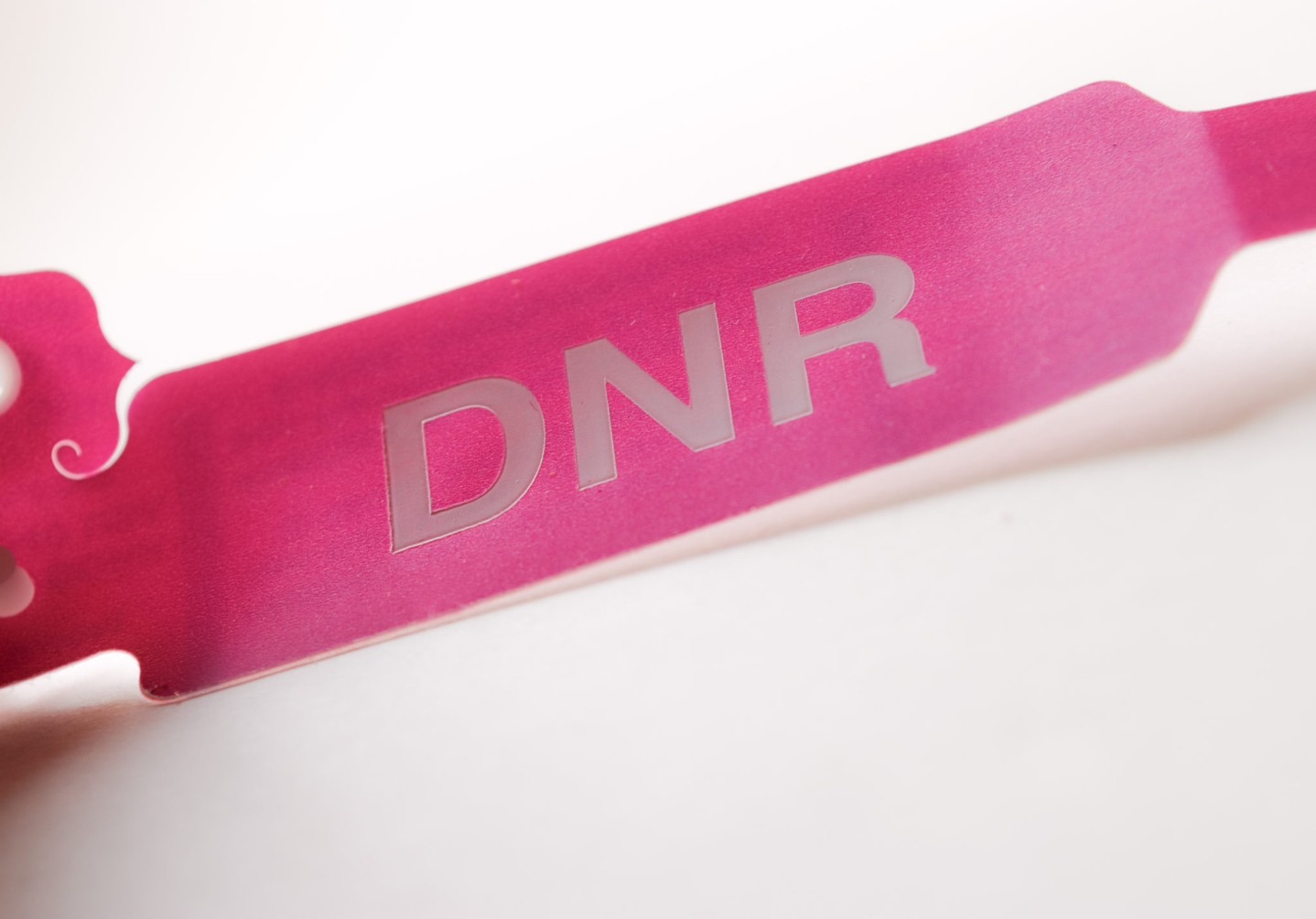Decisions in care and how far it goes
For those of you who work in healthcare, or who have been in the unfortunate situation of having someone close to you in the hospital with a critical illness, the abbreviation DNR is quite familiar. It stands for “Do Not Resuscitate” and generally implies that a patient (or a legal proxy, if the patient is incapacitated) has formally requested that the patient does not want cardiopulmonary resuscitation in the event of cardiac or pulmonary arrest. This means that if the heart stops or goes into a rapid, unstable rhythm the patient is not to receive chest compressions or a defibrillatory shock. If the patient were to stop breathing he or she is not to have a tube passed into the windpipe and placed on a ventilator. The status of DNR is initiated by order of the patient’s attending physician and clearly designated on the patient’s chart.
As you can imagine this is a decision that is not reached casually. For example, a young woman in the intensive care unit after a severe motor vehicle accident could easily develop a complication that would lead to cardiac arrest. If this patient were otherwise healthy and quickly resuscitated her chance at a favorable outcome might be very good. It would be unlikely that we would want to see someone like that receive a DNR order since a chance of survival after a timely resuscitation would be so good.
On the other hand, a debilitated, elderly individual with severe chronic illness and poor baseline quality of life might feel that DNR status is in their best interest. After all, the chance of that patient suffering a cardiopulmonary arrest and then leaving the hospital with good health is remote at best. Statistics attest to this and are quite grim—if you are sick enough that your heart stops while in the hospital then quick, aggressive resuscitation and ventilation won’t make much of a difference in your outcome.
It’s easiest for caregivers and family members when the patient is able to determine DNR status on their own. That way we feel comfortable that these are the wishes of the patient since they know best, after all. The difficulty sometimes comes when an ill patient has not designated DNR status and then loses the ability to express conscious choices. At that point the individual with designated power of attorney—most often a family member—must make a decision that can be very difficult. At some point the attending physician comes to the conclusion that the patient’s outlook is poor and is now at higher risk of cardiac or pulmonary arrest, and has to convene a meeting with the family to suggest initiating DNR status.
I’ve done this on many occasions. The response of the family is never predictable with some being very comfortable with DNR and others nearly paralyzed by the decision. Why some families have such a tough time with this is likely because they fail to realistically understand the purpose of the DNR designation. My guess is they have been too influenced by the Hollywood portrayal of death and dying, particularly with the notion of “pulling the plug.” I try to extinguish this unhelpful stereotype whenever I can.
DNR does NOT mean "Pulling the Plug"
Up until the very moment of death the level of care a patient receives under the DNR order does not differ in any way: he or she will continue to receive all medications, feeding, fluids, procedures, surgeries, and aggressive care that any patient with the same condition would get. What would differ would be the heroic end-of-life efforts we nurses and doctors routinely train for, such as chest compressions and tracheal intubation. These last-ditch endeavors are sometimes successful in the short term but in the long run do nothing more than prolong the inevitable demise of the dying patient.
Families, of course, are concerned about what they see as “giving up” on their loved one, that they should perhaps wait a little longer before they consign them to that dismal status. They wonder if we are not premature in our assessment of the patient’s unfavorable prognosis. While it’s theoretically possible that a patient will be prematurely relegated to DNR status, my experience tells me that the exact opposite is true. In most cases, by the time the doctors and nurses begin talking to family members about the DNR order such a decision is long overdue.
When I talk to families about DNR (or, for that matter, the even more delicate issue of “removal of care”) I like to remind them that if their family member gets bad enough to need resuscitation, their fate is already sealed. When we deliberate over DNR status we are not deciding whether the patient lives or dies. Rather we are deciding how much more unnecessary and unpleasant treatment we will inflict on them before they succumb to inevitable demise. That way they understand that the DNR status is not “giving up” or “pulling the plug” but rather showing kindness and dignity in the last moments of life. And, surely, no one can regret that.
If you are interested in understanding more about DNR and Advance Directives, please visit our Ethics Services page. Our team can help you document your wishes in a way that ensures they are known and followed





